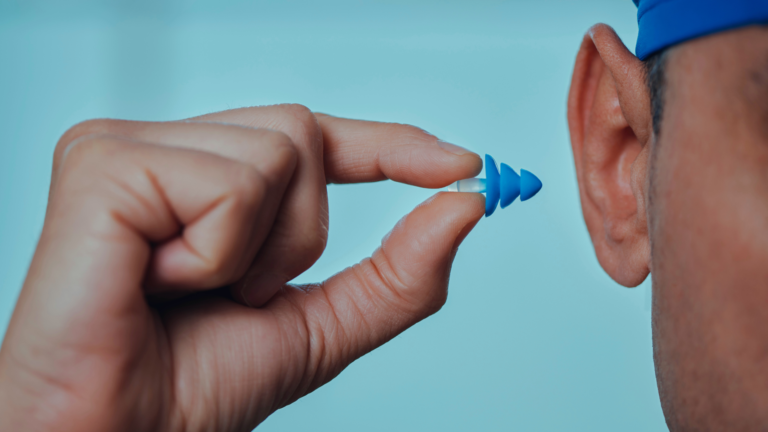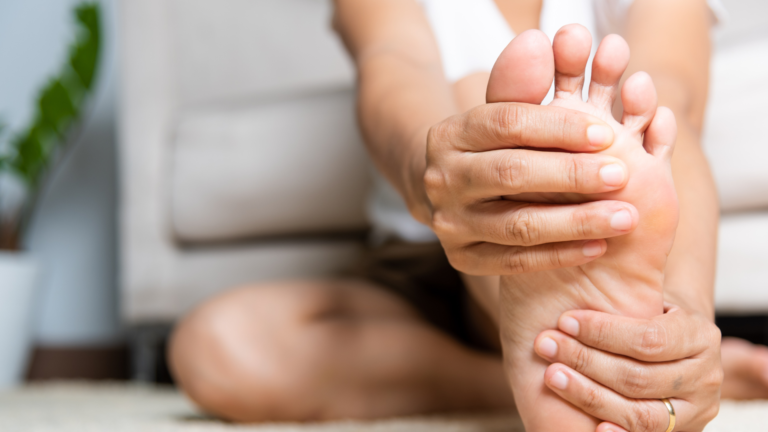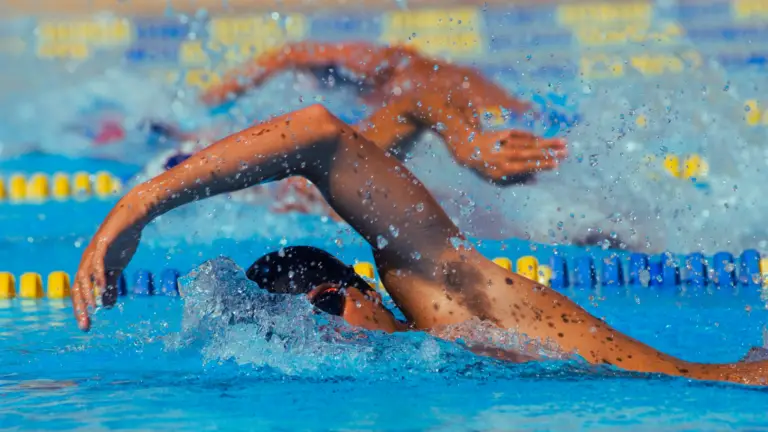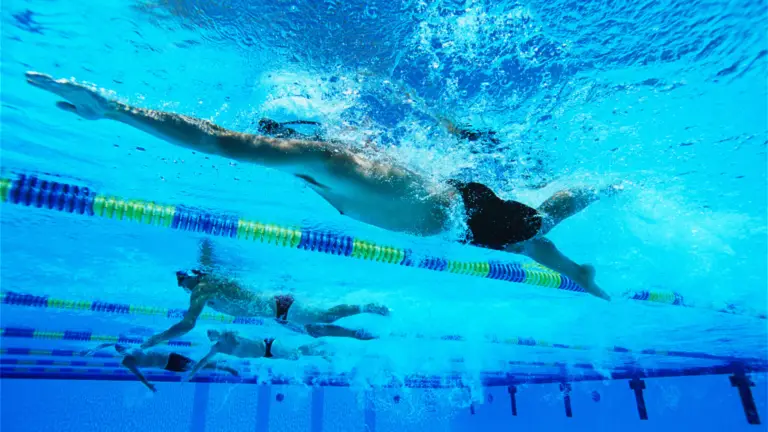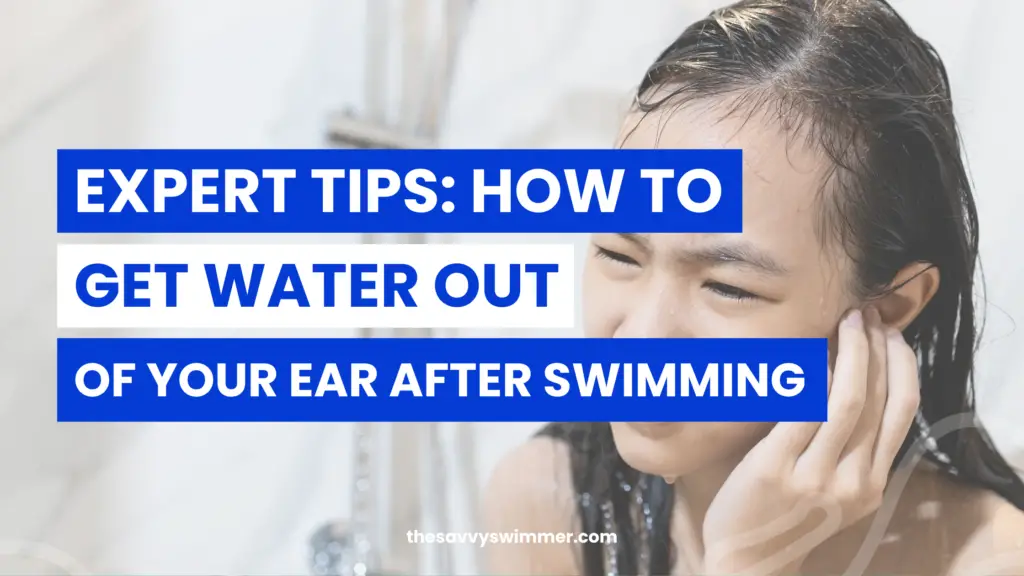
Discover expert tips and home remedies for how to get water out of your ear after swimming, as well as how to prevent discomfort and potential ear infections.
- Jiggle your earlobe or shake your head to dislodge water.
- Use gravity by lying on your side with your head on a towel.
- Create a vacuum by tilting your head sideways and cupping your palm over your ear.
- Evaporate water with a blow dryer on the lowest setting.
- Try eardrops or sprays to soften impacted earwax and repel water.
Inserting objects like cotton swabs into your ear should be avoided as it can cause harm. If home remedies don’t work or you experience symptoms of infection, consult a doctor. Prevent water from getting trapped by using earplugs or a swim cap, drying the outer ear after exposure, and avoiding object insertion.
Safe Methods to Remove Water from Your Ear
Discover safe and effective methods to remove water from your ear after swimming, including techniques to prevent water from getting trapped and tips for quickly drying your ears.
When water gets stuck in your ear after a refreshing swim, it can be uncomfortable and even lead to swimmer’s ear, an infection caused by trapped moisture. But worry not! There are simple and safe methods you can try to get rid of that stubborn water and keep your ears in tip-top shape.
First, try jiggling your earlobe or shaking your head gently to help dislodge the water. If that doesn’t work, you can make use of gravity by lying on your side with your head resting on a towel. This position allows the water to drain out naturally and may provide some relief.
If you’re still struggling, you can create a vacuum by tilting your head sideways and cupping your palm over your ear. Gently press the palm against your ear and then quickly remove it. This suction-like action might help draw out the water and provide some relief. Just be sure not to press too hard!
👂 Expert Tip: Using a blow dryer on its lowest setting, hold it a safe distance from your ear and let the warm air gently evaporate the water. Be careful not to use high heat or get too close to your ear to avoid burns.
For those who prefer a more passive approach, you can try using eardrops or sprays specifically designed to remove water from your ear. Alcohol-based or oil-based drops are commonly used and can help soften any impacted earwax, allowing the water to flow out more easily.

Swim-Ear Ear-Water Drying Aid
Wave goodbye to the irritating sensation of trapped water in your ears with Swim-Ear Ear-Water Drying Aid. Whether you’re an avid swimmer or someone who simply enjoys the occasional dip in the pool, this product is a game-changer. Swim-Ear is a trusted name in ear care, with thousands of satisfied customers. It’s become my go-to when dealing with trapped water in my ears.
“It’s important to always avoid inserting objects into your ear, such as cotton swabs. While it may be tempting, it can actually push the water deeper or even cause damage to your ear canal. Stick to safer methods like the ones mentioned above.” – Dr. Emily Johnson, Ear, Nose, and Throat Specialist.
To prevent water from getting trapped in your ear in the first place, consider using earplugs or a swim cap when swimming. These simple accessories can create a barrier between your ears and the water, reducing the risk of water entering the ear canal. After swimming, gently dry the outer ear with a soft towel or tilt your head to the side and tug on your earlobe to encourage water drainage.
Tips for Preventing Water in Ear:
- Use earplugs or a swim cap when swimming.
- Dry your ears thoroughly after swimming.
- Avoid inserting objects like cotton swabs into your ears.
- Consider using eardrops or sprays to prevent water from getting trapped.
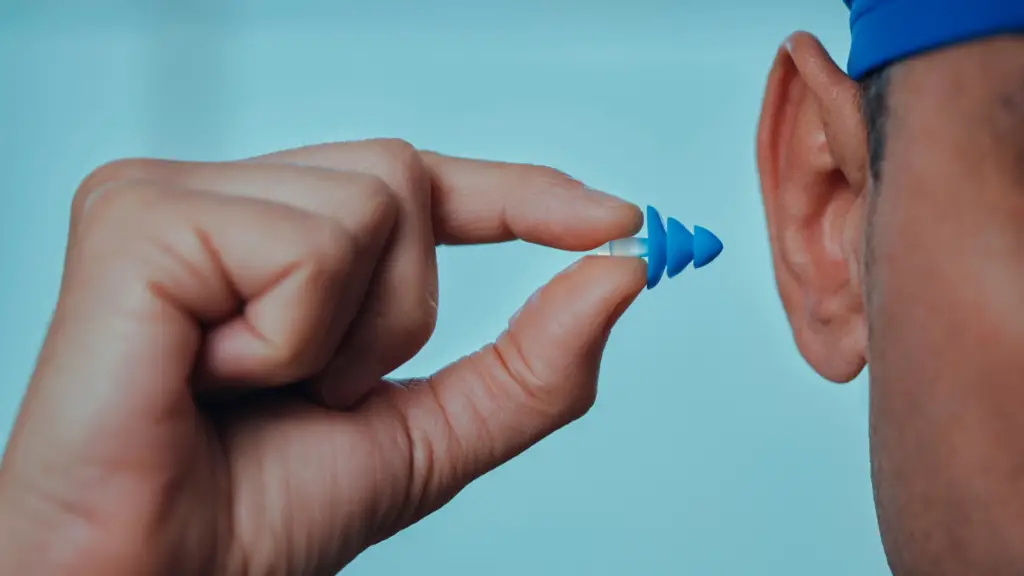
In summary, removing water from your ear after swimming can be done safely and effectively. Whether it’s jiggling, utilizing gravity, creating a vacuum, or using eardrops, finding the method that works for you will bring you relief in no time. Remember to take preventive measures to keep water out of your ears, and never hesitate to seek medical attention if you experience persistent discomfort or signs of infection.
Using Natural Remedies to Relieve Water in Your Ear
Utilize natural remedies like warm steam to release water from your ear after swimming while avoiding harmful practices that can lead to swimmer’s ear. Natural remedies can provide safe and effective relief, allowing you to enjoy your time in the water without the discomfort of water stuck in your ear.
One natural remedy involves using warm steam, which can help to open up the Eustachian tubes and promote the drainage of water from the ear. You can achieve this by taking a hot shower and allowing the warm steam to enter your ear, or by placing a towel over a bowl of steaming hot water and positioning your ear above the steam. Remember to keep a safe distance to avoid burns.
When to Seek Medical Attention
Learn to recognize the signs of an ear infection caused by swimming and understand when it’s necessary to seek medical attention for proper treatment and healing. If the home remedies mentioned earlier don’t provide relief or if you experience any of the following symptoms, it’s important to consult a doctor:
- Persistent pain or discomfort in the ear: This could be a sign of an infection that requires medical attention.
- Decreased or muffled hearing: If water remains trapped in the ear or if the infection worsens, it can affect your ability to hear properly.
- Drainage from the ear: If you notice any fluid, pus, or blood coming from your ear, it may indicate a severe infection that needs immediate medical care.
- Increased redness or swelling: If the outer ear becomes more inflamed or swollen, it could be a sign of a more serious infection.
- Fever or dizziness: These symptoms, along with ear pain, may indicate an advanced infection that requires medical treatment.
It’s important not to delay seeking medical attention if you experience any of these symptoms. An ear infection caused by swimming can lead to complications if left untreated, such as a perforated eardrum or a chronic infection. A healthcare professional will be able to properly diagnose the infection and prescribe any necessary medications, such as ear drops or antibiotics.
By recognizing the signs of an ear infection and seeking prompt medical attention, you can ensure proper treatment and avoid potential complications. Remember, your health is important, and it’s always better to err on the side of caution when it comes to your ears.
❗️If you have an ear infection and are wondering if you can still swim. Check out this article: Swimming with an Ear Infection: Risks, Precautions, & Recovery
| Signs to Seek Medical Attention for Ear Infection | |
|---|---|
| Persistent pain or discomfort in the ear | Decreased or muffled hearing |
| Drainage from the ear | Increased redness or swelling |
| Fever or dizziness | |
Conclusion
By following these expert tips for removing water from your ear after swimming and taking preventive measures, you can enjoy a safe and comfortable swimming experience, while minimizing the risk of swimmer’s ear and ear infections.
There are several effective methods to get water out of your ear, such as jiggling your earlobe, using gravity to your advantage, creating a vacuum, using a blow dryer, or trying eardrops or sprays. These techniques can help dislodge the water and provide relief.
It’s important to note that inserting objects into your ear, like cotton swabs, should be avoided as it can cause more harm. Instead, opt for safe and natural remedies, such as warm steam from a hot shower or a bowl of steaming hot water, to help release the water from your ear.
To prevent water from getting trapped in your ear in the first place, you can use earplugs or a swim cap, dry the outer ear thoroughly after water exposure, and avoid inserting objects into the ear. If home remedies don’t work or if you experience symptoms of infection, it is best to consult a doctor for proper diagnosis and treatment.



